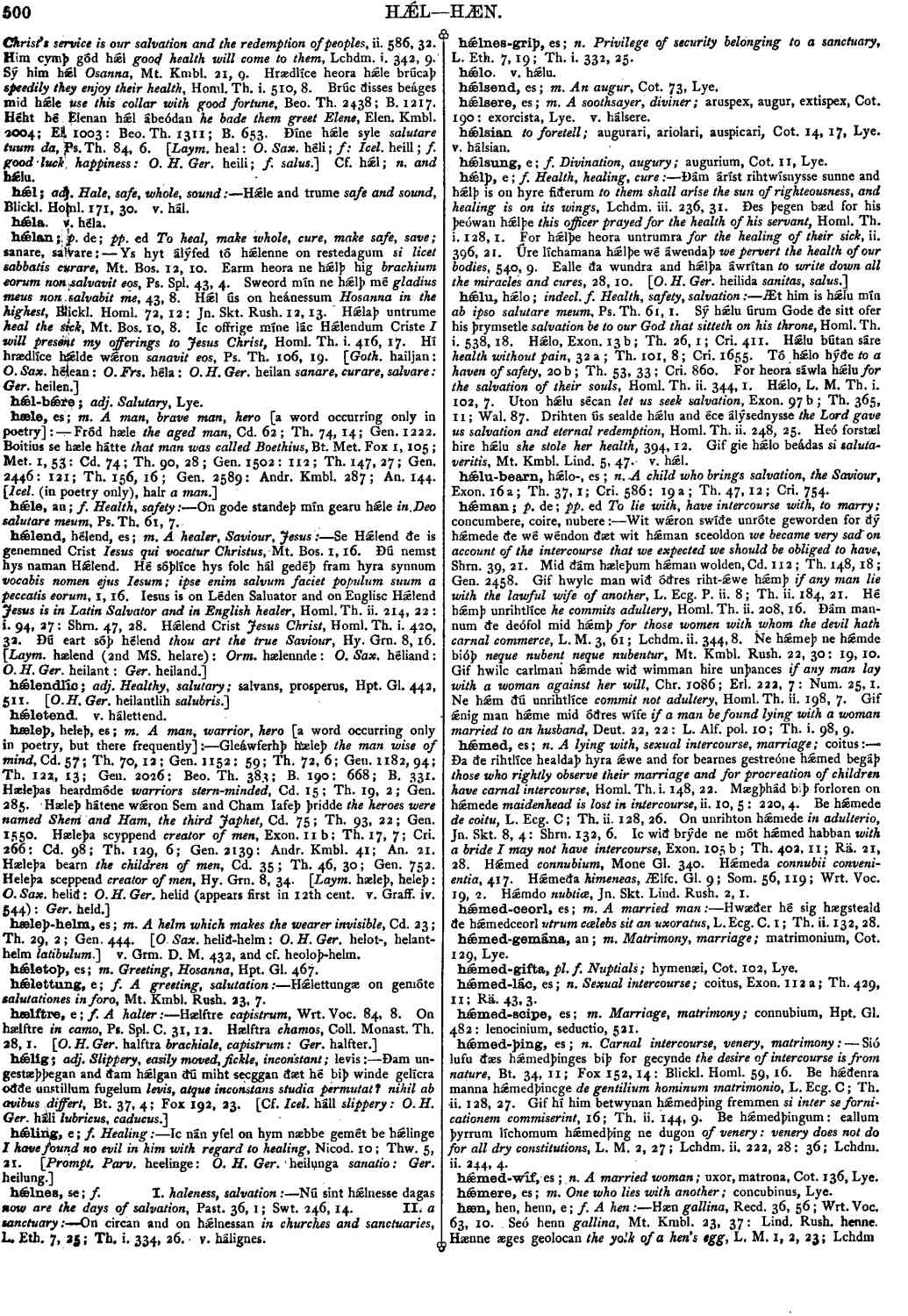hǽmed
- noun [ neuter ]
-
Ða ðe rihtlíce healdaþ hyra ǽwe and for bearnes gestreóne hǽmed begáþ
those who rightly observe their marriage and for procreation of children have carnal intercourse,
- Homl. Th, i. 148, 22.
-
Mægþhád biþ forloren on hǽmede
maidenhead is lost in intercourse,
ii.- 10, 5 : 220, 4.
-
Be hǽmede
de coitu,
- L. Ecg. C; Th. ii. 128, 26.
-
On unrihton hǽmede
in adulterio,
- Jn. Skt. 8, 4 : Shrn. 132, 6.
-
Ic wið brýde ne mót hǽmed habban
with a bride I may not have intercourse,
- Exon. 105 b; Th. 402, 11; Rä. 21, 28.
-
Hǽmed
connubium,
Mone- Gl.
340.
-
Hǽmeda
connubii convenientia,
417. -
Hǽmeda
himeneas,
- Ælfc. Gl. 9; Som. 56, 119; Wrt. Voc. 19, 2.
-
Hǽmdo
nubtiæ,
- Jn. Skt. Lind. Rush. 2, 1.
Bosworth, Joseph. “hǽmed.” In An Anglo-Saxon Dictionary Online, edited by Thomas Northcote Toller, Christ Sean, and Ondřej Tichy. Prague: Faculty of Arts, Charles University, 2014. https://bosworthtoller.com/17910.
Checked: 0